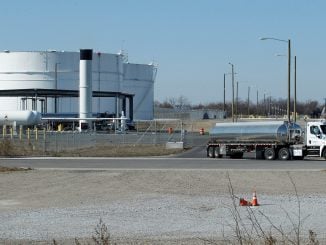RALEIGH — The coronavirus pandemic and the heightened attention on the nation’s growing unemployment rate have shed new light on the importance of both workforce development and the changing landscape of the U.S. labor force. Experts note that certain professions, such as those within the hospitality and services sectors, may never fully bounce back, while others in industries like tech and healthcare may become even more important than before the pandemic struck. Furthermore, COVID-19 has exacerbated the economic divide between the nation’s urban and rural communities, where even internet access is dictated by where one can afford to live.
Recognizing the significant challenges that lie ahead, North Carolina’s Golden LEAF Foundation is doing its part to move the state’s economy forward by investing now more than ever in a few key scholarship programs to encourage workforce development in and around the state’s rural communities. The scholarship programs have a long history of helping students in our area succeed and include the foundation’s four-year Golden LEAF Scholarship Program for use at one of N.C.’s many colleges or universities, its two-year program to attend one of the state’s 58 community colleges, and the Golden LEAF Scholars Leadership Program. The Leadership Program, which is only open to Golden LEAF Scholarship recipients, provides leadership training through the Center for Creative Leadership and stipends for internship opportunities in rural North Carolina communities.
In order to be eligible for their four-year university program applicants must be a high school senior enrolling full-time as a first-year student or a currently enrolled community college transfer student enrolling full-time at any participating North Carolina college or university. They must have a GPA of no less than 3.0, be a resident of a rural county that is economically distressed and/or tobacco dependent, and most importantly commit to returning to a rural county that is economically distressed. High school seniors are eligible for a four-year scholarship totaling $12,000 ($3,000 a year over four years) and community college transfer students are eligible for $3,000 a year for up to three years.
The Golden LEAF Foundation, which stands for Long-term Economic Advancement Foundation, is a nonprofit organization that was first established in 1999 to receive a portion of the state’s funding received out of the 1998 Master Settlement Agreement with cigarette manufacturers. It works in partnership with local governments, educational institutions, economic development groups and other public agencies, to support initiatives that advance the public good through projects like infrastructure improvement and workforce development, as opposed to those geared towards helping the private sector. The foundation has a 15-member board of directors appointed by the governor, the president pro tempore of the Senate and the speaker of the House.
Golden LEAF president and CEO Scott T. Hamilton says the organization’s $79.2 million grant budget, which has funded hundreds of millions of dollars in grants in the last two decades, focuses in the areas of agriculture, economic development and workforce preparedness as well as offering educational assistance to those most in need. He says there is a renewed focus on job creation and education assistance as a result of the current coronavirus pandemic and the associated economic costs. In fact, he notes, the foundation’s board recently raised the amount it allocates to its general scholarship fund for community colleges from $750,000-$1 million per year.
“I think this year in particular we are all really recognizing the impact COVID-19 has had not only on our state’s university system and all of its 58 community colleges, but also on the entire workforce as it relates to job skills and training,” Hamilton says. He also notes that most of Golden LEAF’s scholarship programs provide apprenticeships and require on the job training, which have been challenging in a socially distanced environment.
“A lot of the jobs our students are training for can’t be done remotely, such as working on farms or in manufacturing for instance, so one of the big questions right now is how do we train up a new workforce and teach these students out in the field while also maintaining the proper safety precautions.”
Golden LEAF Scholarship Alumnae Gayla Olvera is a lifelong resident of Lucama, N.C., in Wilson County. She graduated from James B. Hunt High School and is a 2019 graduate of the University of Mount Olive with a bachelor’s degree in psychology. In addition to the four-year scholarship program, she also attended Golden LEAF’s leadership program.
“Thanks to the Golden LEAF Scholarship, I was able to achieve my dreams of pursing my bachelor’s degree in psychology. As a first-generation high school and college graduate in my family, I am very thankful I received this scholarship. It not only helped me, but also took the financial burden off of my family. Through the leadership program, I learned about the importance of understanding and applying my personal leadership qualities. With this knowledge, I became equipped to serve and give back to my local rural community. In fact, I am now working full-time at Pride in North Carolina, LLC where I served as an intern for three years. I am excited to see what’s to come with the foundation over the next 20 years and to hear about how Golden LEAF has impacted other North Carolinians.”
Hamilton, Golden LEAF’s president, says the organization recognizes the huge responsibility it has been given not only to aid in workforce development, but also to educate and create jobs in the tobacco-dependent communities it was set up to serve. “We cannot idly wait for things to happen that might result in some good for these communities and the people we were created to help. We must be proactive and aggressive to meet the challenges facing us in an increasingly competitive economy and especially now in this time of COVID. I have a definition for jobs, and it is that they provide hope, opportunity, and dignity.”

